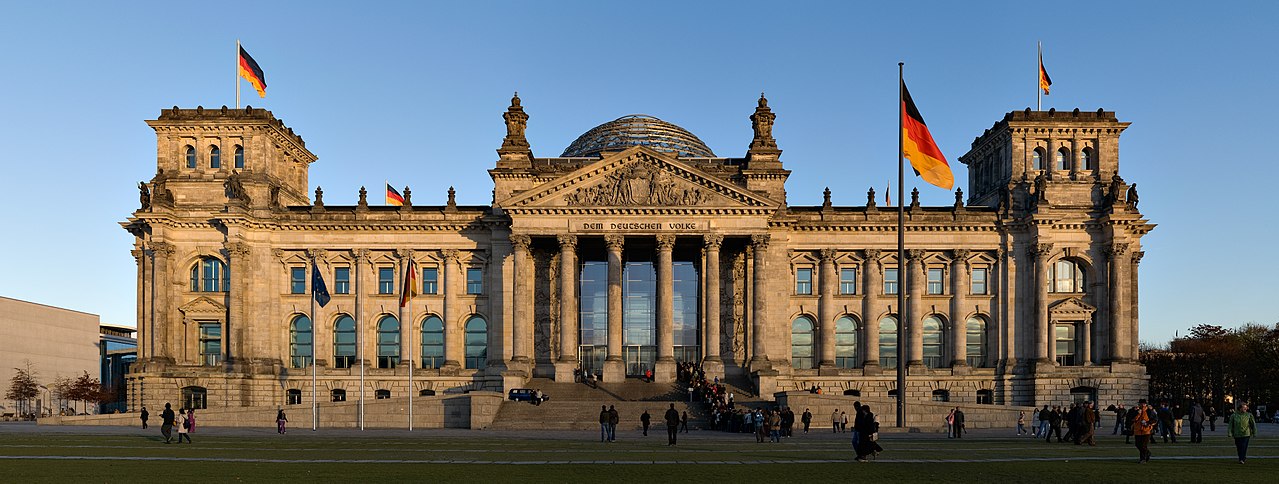Is Germany ready for the OGP Steering Committee?

A critical review of the 2nd national action plan
In October 2019 Germany is officially joining OGP’s steering committee, together with Indonesia. However, after the release of the second national action plan, the steering committee seems like premature praise. Or what us Germans would call it: Vorschusslorbeeren, which literally translates to receiving a roman laurel — before you’ve won the competition.
The action plan was adopted by the federal cabinet on 4 September and first announced in a video statement made by Chancellor Angela Merkel the weekend before. This created a lot of media attention, but does not hide the fact that the plan lacks high level commitments. But how did Germany do on the second action plan?
Key Open Gov pillars not included
The way the government deals with freedom of information (FOI)nicely illustrates the status quo of Open Government in Germany. On the one hand the arguably strongest commitment in the action plan relates to FOI. The Foreign Ministry plans to open part of its political archive. On the other hand the federal government is using an outdated copyright law to sue civil society organisations and hide unwelcome government reports. Boiling this down, while one part of the government embraces openness, another is cracking down on it even harder.
Similarly, beneficial ownership (BO)is being neglected, even though parts of the government were in favor. The timing was great, with current EU regulation mandating BO data to be publicly available. Nonetheless, the government will not implement an open data registry, because the leading Ministry of Finance opposed it. Therefore, data remains locked behind a paywall with each request costing € 4.50. This is extremely disappointing given the government’s coalition agreement claims Germany wants to be an “international pioneer for Open Data”. And, sadly, it shows once again that there is no clear position on the issue within the German government.
Lots of consultation, little commitment
The Ministry of the Interior is starting a funding program dedicated to creating “regional open government labs”. This requires multiple municipalities to work together and cooperate with at least one organisation from civil society. Supporting the local level is always a good idea, especially in a federal state like Germany. However, funding programs remain short term and will only reach a small number of municipalities. Investing in a joint infrastructure such as an open-source platform for the law-making process would have been more sustainable.
Further commitments show that the government strongly relies on consultations. The strategy for youth empowerment, the high-tech strategy and a project on improved law making all boil down to citizen consultations. However, genuine participation in the form of co-determination, partial or full decision-making authority and self-organisation, is not considered. Furthermore, from the 46 commitments suggested by civil society only three were included in the action plan.
Listen, learn and hopefully lead
The lack of ambitious long term commitments such as a lobby register, open beneficial ownership data or FOI reform is concerning. However, small signs of improvement can be seen. While the first action plan did not include any commitments from the regional level, the second has five coming from three different states. That’s not enough given Germany’s 16 federal states, but it’s a step in the right direction.
The German OGP unit moving to the Chancellery (instead of the Ministry of the Interior) lead to growing awareness and support by the working level within ministries. Showing that continuous engagement is helpful.
For Germany to become a leader in the Steering Committee, high level commitment is necessary. Merkel’s video statement is a good start, but not enough. Why not put the head of the Chancellery directly in charge of OGP? How about increased financial investments in civil society, and rolling out the kind of broad consultation and participation the OGP deserves?
The current advice to the OGP community from the perspective of German civil society is this: Look to the German government to listen and learn, but do not get too excited or expectant about leadership.
Our message to the German government is that they must not rest on their laurels, but rather act to demonstrate real commitment to transformative change.